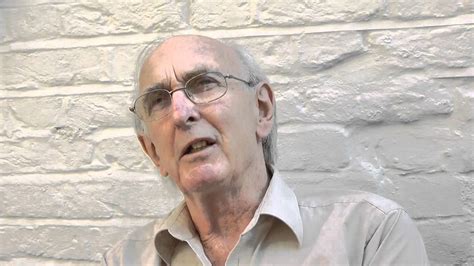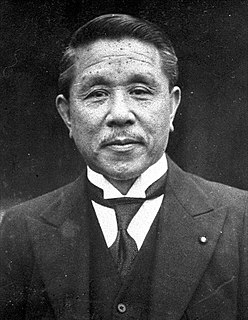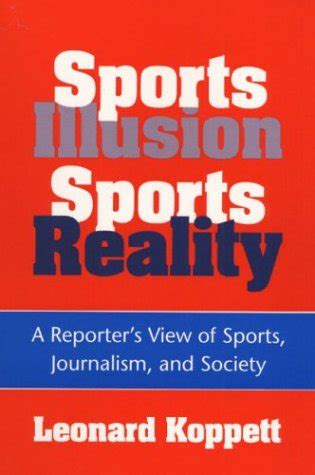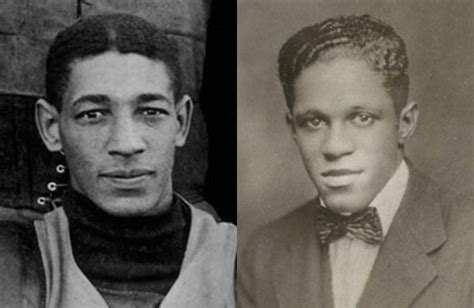Top 564 Convincing Quotes & Sayings - Page 9
Explore popular Convincing quotes.
Last updated on November 9, 2024.
There is an inconvenience which attends all abstruse reasoning. that it may silence, without convincing an antagonist, and requires the same intense study to make us sensible of its force, that was at first requisite for its invention. When we leave our closet, and engage in the common affairs of life, its conclusions seem to vanish, like the phantoms of the night on the appearance of the morning; and 'tis difficult for us to retain even that conviction, which we had attain'd with difficulty.
Though films become more daring sexually, they are probably less sexy than they ever were. There haven't been any convincing love scenes or romances in the movies in a while. (Nobody even seems to neck in theaters any more.) ... when the mechanics and sadism quotients go up, the movie love interest goes dead, and the film just lies there, giving a certain amount of offense.
There is a period in one's life - perhaps not longer than six months - when one lives in two worlds at once ... It is the time when one has freshly learned to read. The Word, till then a denominating aspect of the Thing, has suddenly become detached from it and is perceived as a glittering entity, transparent and unseizable as a jellyfish, yet able to create an independent world that is both more recondite and more instantaneously convincing than the world one knew before.
As commonly understood, creationism involves belief in an earth formed only about ten thousand years ago, an interpretation of the Bible that is still very popular. For the record, I have no reason to doubt that the universe is the billions of years old that physicists say it is. Further, I find the idea of common descent (that all organisms share a common ancestor) fairly convincing, and have no particular reason to doubt it.
The child learns to believe a host of things. I.e. it learns to act according to these beliefs. Bit by bit there forms a system of what is believed, and in that system some things stand unshakeably fast and some are more or less liable to shift. What stands fast does so, not because it is intrinsically obvious or convincing; it is rather held fast by what lies around it.
When you look back on a historical period of music, it seems so obvious to you what the characteristics of it are, but they're not obvious at the time. So, when I look back at my own work, I could easily write a very convincing sort of account of it that made it look like I had planned it all out from day one and that this led logically to that and then I did this and then that followed quite naturally from that. But that's not how it felt.
Who, born for the universe, narrow'd his mind, And to party gave up what was meant for mankind; Though fraught with all learning, yet straining his throat To persuade Tommy Townshend to lend him a vote. Who too deep for his hearers still went on refining, And thought of convincing while they thought of dining: Though equal to all things, for all things unfit; Too nice for a statesman, too proud for a wit.
She would have colored gracefully with embarrassment had she not possessed the complexion of one of those “heathen Italians,” as her mother said, who never colored, gracefully or otherwise. (Convincing her mother that Christianity had, to all intents and purposes, originated with the Italians, thus making them the exact opposite of heathen, was a waste of time and breath.)
Angus Deaton has written a wonderful book, The Great Escape: Health, Wealth, and the Origins of Inequality. . . . Deaton's book is a magisterial overview of health, income, and wealth from the industrial revolution to the present, taking in countries poor and rich. Not just jargon-free but equation-free, the book is written with a beautifully lucid style. . . . [P]owerfully argued and convincing.
I never in a million years thought I would be starring in Hairspray, ever. Because if you think about my past, it's been 30 years of playing a macho leading man, so when I was offered it, I said: "Why? Why me? What have I done to deserve that you think I should do this?" After much convincing, over a year and two months, I was convinced they wanted to make a great movie.
For me, I go somewhere for three days, and then I come back and I want to change everything, and so it's a fight with everybody. I'm transforming and convincing. It's more than designing. It's shaking people and trying to give them direction. I'm a bit of a control freak. This is a problem as I get older, and it's something I should work on. I should be more confident - learn to trust people and give them freedom and delegate.
Through inculcating the notion that sacrifice is a virtue, Christianity has succeeded in convincing many people that misery incurred through sacrifice is a mark of virtue. Pain becomes the inignia of morality - and conversely, pleasure becomes the insignia of immorality. Christianity, therefore, does not say, "Go forth and be miserable." Rather, it says, "Go forth and practice the virtue of self-sacrifice." In practical terms, these commands are identical.
I said there was nothing so convincing to an Indian as a general massacre. If he could not approve of the massacre, I said the next surest thing for an Indian was soap and education. Soap and education are not as sudden as a massacre, but they are more deadly in the long run; because a half-massacred Indian may recover, but if you educate him and wash him, it is bound to finish him some time or other.
I recently went to my staircase at Clare College, Cambridge and there were women there! There have been a lot of convincing studies recently about the loss of productivity in the Western male. It may be that entertainment culture now is so engaging that it keeps people satisfied. We didn't have that. Science was much more fun than listening to the radio. When you are 16 or 17 and in that inherently semi-lonely period when you are deciding whether to be an intellectual, many now don't bother.
An author describing the methods of intensive farming, or the excesses of sport hunting, or even the harsher uses of animals in science writes with confidence that most readers will share his sense of concern and indignation. Sounding the call to action-convincing people that change is not only necessary, but actually possible-is more problematic. In protecting animals from cruelty, it is always just one step from the mainstream to the fringe. To condemn the wrong is obvious, to suggest its abolition radical.
The Hawk and the Dove is a wonderful idea for a book, wonderfully carried out. Nicholas Thompson has used illuminating new material to present each of his protagonists in a convincing, respectful, but unsparing way. Even more valuable, he has used the interactions and tensions between Paul Nitze and George Kennan to bring much of American 20th century foreign policy to life, with human richness ever present but with the big issues clear in all their complexity.
It was inevitable: Yankel fell in love with his never-wife. He would wake from sleep to miss the weight that never depressed the bed next to him, remember in earnest the weight of gestures she never made, long for the un-weight of her un-arm slung over his too-real chest, making his widower's rememberences that much more convincing and his pain that much more real.
I find that as a female boss in the music industry, it's difficult to actually be treated as if you actually are the boss and to have people act on your instructions and take you seriously. Like you call up people who are working for you and say, "I'd like to see such-and-such document," and they tell you that you don't need it. Then you have to spend time convincing them that it doesn't matter whether they think you need it or not, they're supposed to hand it to you.
Speaking as someone who bought the party line for far too long, you would be amazed what you can believe if you keep convincing yourself the press, the libs, the universities - hell, everyone but a few on the religious fringe and big business - are out to get you. I was lucky - I started to snap out of this a couple of years ago and hopefully will now apply to both major parties the same skepticism and cynicism I had in the past reserved for Democrats.
She wasn't ready to settle down, she told her friends. That was one way of putting it. Another was would have been that she had not found anyone to settle down with. There had been several men in her life, but they hadn't been convincing. They'd been somewhat like her table - quickly acquired, brightened up a little, but temporary. The time for that kind of thing was running out, however. She was tired of renting.
Most Israelis have a sense, 'We just don't want to live in the Middle East anymore. We don't want it to be the Middle East. Were going to just build a wall or operate unilaterally' - not try to even use force as used to be the case to convince Arabs to accept Israel by convincing them that Israel is here to stay and then negotiating.
I was aware that I had to pay off things in a convincing emotional fashion, that I had to address the lingering plot points in some real tangible sense, and that I had to make this a self-contained novel, in case I'm run over by a bus tomorrow or in case there's no demand for anyone to ever see a sequel. (Two things that I hope don't happen, incidentally.)
So many of the stories are about perspective and viewpoint. It's not just about seeing and revelation. The idea of having many different stories from many different perspectives has something to do with me trying to deal with the impossibility of having a wide enough view to say anything really convincing on that scale.
There are certain ways, narrative forms, that do not function as a continuation, for example, of 3D movies. You see, what is obvious to me is virtual reality or immersive 360 degrees virtual reality is not somehow a part of 3D movies, and it is not a new form of video games, it's neither, it is something completely new, something different, and nobody has come up yet with real convincing content.
Of course, even the general designation 'religious' includes various basic ideas or convictions, for example, the indestructibility of the soul, the eternity of its existence, the existence of a higher being, etc. But all these ideas, regardless of how convincing they may be for the individual, are submitted to the critical examination of this individual and hence to a fluctuating affirmation or negation until emotional divination or knowledge assumes the binding force of apodictic faith.
I'm not sure that Eastern culture does either, but I've never lived in India etc so I couldn't tell you. I can say we definitely don't. So people will sometimes come in contact with something strange and think, "Oh, it must be like this" and have a lot of fantasies about it, and somebody who sort of looks like our fantasy version of what enlightenment is can be very convincing in seeming like they've got something and then play that role.
The system has a way of convincing people that because they live in the USA they are better off than all other people in the world. This gets them focused on the wrong things, of course, but it has been a tried and true way of deflecting class struggle, something I don't think Marx didn't fully anticipated. The education system, and the whole culture really, has a lot to do with how these feelings are transmitted to each new generation. When parents say their kids were heroes when they died for nothing in Iraq, you can see the power of this.
Nonviolence seeks to ‘win’ not by destroying or even by humiliating the adversary, but by convincing [the adversary] that there is a higher and more certain common good than can be attained by bombs and blood. Nonviolence, ideally speaking, does not try to overcome the adversary by winning over [them], but to turn [them] from an adversary into a collaborator by winning [them] over.
It’s true that someone will always say that good and evil don’t exist: that is a person who has never had any dealings with real evil. Good is far less convincing than evil, but it’s because their chemical structures are different. Like gold, good is never found in a pure state in nature: it therefore doesn’t seem impressive. It has the unfortunate tendency not to act; it prefers, passively, to be seen.
One of their major initiatives was getting all officers on Facebook. So the question is, why are these people who are there to train the Afghans being pressured to be on Facebook? Again, it sounds benign until you realize that the military's concern isn't the Afghans, it's convincing the American people that we should be in Afghanistan.Soldiers can put up pictures and say "See how happy the Afghans are because of our presence here." It's a way to directly influence the American people using propaganda.
Such exaggerations have been so common that the public takes them with a grain of salt and partly excuses them as being due to the advertiser's license of self-assertiveness. Nevertheless, the fact remains that superlative generalities are weak arguments and far less convincing than a statement of facts. Much advertising copy would be improved immensely by doing away with brag and substituting actual facts about the merits of the article.
White supremacist ideology is based first and foremost on the degradation of black bodies in order to control them. One of the best ways to instill fear in people is to terrorize them. Yet this fear is best sustained by convincing them that their bodies are ugly, their intellect is inherently underdeveloped, their culture is less civilized, and their future warrants less concern than that of other peoples.
The Bully has a Jekyll and Hyde nature - is vile, vicious and vindictive in private, but innocent and charming in front of witnesses; no-one can (or wants to) believe this individual has a vindictive nature - only the current target of the serial bully's aggression sees both sides; whilst the Jekyll side is described as "charming" and convincing enough to deceive personnel, management and a tribunal, the Hyde side is frequently described as "evil"; Hyde is the real person, Jekyll is an act.
The answer, usually, is no. Wisdom is a quality that defies easy definition but psychologists who study aging have found that some of its components - judgment, emotional regulation - do improve with age in most people, consciously or not. Of course there is a subset of people out there who are sitting in their rocking chairs, spewing hate, but my guess is that these people weren't very pleasant to begin with, ... The reality is that the data are fairly convincing that people as they get older become more positive and less self-absorbed.
There is this ferocious digital revolution coming along and we're in the teeth of that at the time of maximum economic disruption. There are huge opportunities there. I made the point in my supplementary statement that the Guardian is now a very considerable global player, but there are huge challenges in terms of making, of finding, the convincing business model, so I want to see Guardian journalism continue and thrive, although whether and to what extent that is in print or in digital is a sort of second order matter.
In the mighty and almost limitless potential of American industry-the brilliance and rugged determination of its leaders; the skill, energy and patriotism of its workers-there has been welded an almost impregnable defense against the evil designs of any who would threaten the security of the American continent. It is indeed the most forceful and convincing argument yet evolved to restrain the irresponsibility of those who would recklessly bring down upon the good and peace-loving peoples of all the nations of the earth the disaster of total war.
There were also the razor marks on her wrists and forearms, half a dozen per arm, not very deep, not very convincing really, just a lame, hapless attempt at hurting herself. There hadn't even been that much blood and nobody at the hospital had been at all surprised. These scars, for some reason, he didn't mind. Maybe they even appealed to him. They showed that she was weak and in need of him.
The entire hominid collection known today would barely cover a billiard table, ... the collection is so tantalizingly incomplete, and the specimens themselves often so fragmented and inconclusive, that more can be said about what is missing than about what is present. ...but ever since Darwin's work inspired the notion that fossils linking modern man and extinct ancestor would provide the most convincing proof of human evolution, preconceptions have led evidence by the nose in the study of fossil man.
My interest, perhaps, came out of the trauma of being a young immigrant in this country and constantly feeling my "resident alien" status. I remember trying to learn English on kindergarten playgrounds. I tried hard to be a convincing American but it was a losing battle. I was labeled weird and that tag never left me - all through high school, I was always the oddball. It was not always an easy path - I just had to tell myself that one day, being on the periphery would become an asset (and I think it finally has, as a creative adult).
Gradually, at various points in our childhoods, we discover different forms of conviction. There's the rock-hard certainty of personal experience ("I put my finger in the fire and it hurt,"), which is probably the earliest kind we learn. Then there's the logically convincing, which we probably come to first through maths, in the context of Pythagoras's theorem or something similar, and which, if we first encounter it at exactly the right moment, bursts on our minds like sunrise with the whole universe playing a great chord of C Major.
It's not about pop culture, and it's not about fooling people, and it's not about convincing people that they want something they don't. We figure out what we want. And I think we're pretty good at having the right discipline to think through whether a lot of other people are going to want it, too. That's what we get paid to do.
If all our political and intellectual elite offers by way of a national culture is "pop music, gambling, fashionable clothes or television," then we can neither mount a convincing intellectual defense against our enemies, nor hope to integrate intelligent, inquiring, and unfulfilled Muslim youths young men principally, of course to our way of life.
Pictures! Pictures! Pictures! Often, before I learned, did I wonder whence came the multitudes of pictures that thronged my dreams; for they were pictures the like of which I had never seen in real wake-a-day life. They tormented my childhood, making of my dreams a procession of nightmares and a little later convincing me that I was different from my kind, a creature unnatural and accursed.
Jazz spent a chunk of the day fantasizing about ways to kill his grandmother, plotting them and planning them in the most excruciating, gruesome detail his imagination would allow. It turned out his imagination allowed quite a bit. He spent the rest of the day convincing himself--over and over--not to do it.
While testimonies can come as dramatic manifestations, they usually do not. Sometimes people think they need to have an experience like Joseph Smith's vision before they gain testimonies. If we have unrealistic expectations of how, when, or where answers come, we risk missing the answers which come as quiet, reassuring feelings and thoughts that most often come after our prayers, while we are doing something else. These answers can be equally convincing and powerful.
The notion that somehow or another they'll (Iran) put it in a picnic basket and hand it to some terrorist group is merely an argument that may be convincing to some people who don't know anything about nuclear weapons. I don't find that argument very credible, I'm not sure that people who make it even believe in it. But it's a good argument to make if you have no other argument to make. The fact of the matter is, Iran has been around for 3000 years, and that is not a symptom of a suicidal instinct.
I investigated reported Japanese atrocities committed by the Japanese Army in Nanking and elsewhere. Verbal accounts of reliable eyewitnesses and letters from individuals whose credibility is beyond question afford convincing proof that the Japanese Army behaved and is continuing to behave in a fashion reminiscent of Attila and his Huns. Not less than 300,000 Chinese civilians were slaughtered, many in cold blood.
We need to raise the level of our game in terms of explaining the planetary warming by infrared absorption of CO2 etc. The missing area of understanding seems to be the actual physical mechanism. Lets target an explanation at an audience that has taken 1 year each of undergraduate physics and chemistry, plus calculus. Once we have something that is convincing at this level, we can work on how to communicate this to the interested public (i.e. those that hang out in the climate blogosphere). Willis Eschenbach’s help is needed in translating this for the WUWT crowd.
There is convincing evidence that the search for solitude is not a luxury but a biological need. Just as humans posses a herding instinct that keeps us close to others most of the time, we also have a conflicting drive to seek out solitude. If the distance between ourselves and others becomes too great, we experience isolation and alienation, yet if the proximity to others becomes too close, we feel smothered and trapped.
Some care is needed in using Descartes' argument. "I think, therefore I am" says rather more than is strictly certain. It might seem as though we are quite sure of being the same person to-day as we were yesterday, and this is no doubt true in some sense. But the real Self is as hard to arrive at as the real table, and does not seem to have that absolute, convincing certainty that belongs to particular experiences.
There's an internal coherence and logic to what they get from [Rush] Limbaugh, Glenn Beck, and the rest of these guys. And they sound very convincing, they're very self-confident, and they have an answer to everything - a crazy answer, but it's an answer. And it's our fault if that goes on. So one thing to be done is don't ridicule these people, join them, and talk about their real grievances and give them a sensible answer, like, "Take over your factories."
D.H. Lawrence, I think, defined the difference between writing an article and writing a novel very well. He said, in writing a novel, the writer must be able to identify emotionally and intellectually with two or three or four contradicting perspectives and give each of them very a convincing voice. It's like playing tennis with yourself and you have to be on both sides of the yard. You have to be on both sides, or all sides if there are more than two sides.
Statistics are the lifeblood of baseball. In no other sport are so many available and studied so assiduously by participants and fans. Much of the game's appeal, as a conversation piece, lies in the opportunity the fan gets to back up opinions and arguments with convincing figures, and it is entirely possible that more American boys have mastered long division by dealing with batting averages than in any other way.
I was very struck by the fact that Colin Powell said he would produce evidence of Osama bin Laden fault and then never produced it. Then Tony Blair produced a document of seventy paragraphs, but only the last nine referred to the World Trade Center, and they were not convincing. So we have a little problem here: If they're guilty, where is the evidence? And if we can't hear the evidence, why are we going to war?
There is a falsehood that some are born with an attraction to their own kind, with nothing they can do about it. They are just 'that way' and can only yield to those desires. That is a malicious and destructive lie. While it is a convincing idea to some, it is of the devil. No one is locked into that kind of life. From our premoral life we were directed into a physical body. There is no mismatching of bodies and spirits. Boys are to become men-masculine, manly men-ultimately to become husbands and fathers. No one is predestined to a perverted use of these powers.
I would proclaim that the vast majority of what [say, Scientific American] is true-yet my ability to defend such a claim is weaker than I would like. And most likely the readers, authors, and editors of that magazine would be equally hard pressed to come up with cogent, non-technical arguments convincing a skeptic of this point, especially if pitted against a clever lawyer arguing the contrary. How come Truth is such a slippery beast?
In all countries, in all centuries, the primary reason for government to set up schools is to undermine the politically weak by convincing their children that the leaders are good and their policies are wise. The core is religious intolerance. The sides simply change between the Atheists, Catholics, Protestants, Unitarians, etc., depending whether you are talking about the Soviet Union, the Austro-Hungarian Empire, America, etc. A common second reason is to prepare the boys to go to war and the girls to cheer them on.



























































